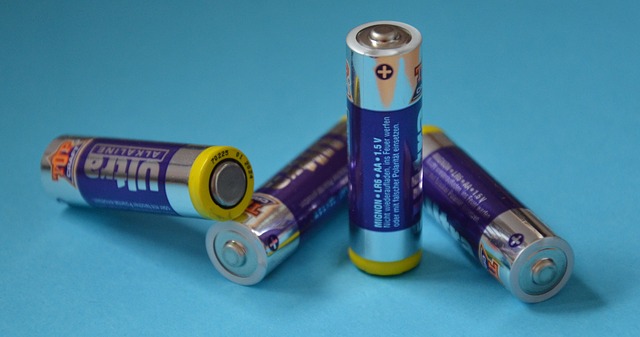Lithium-ion Battery Storage Requirements- Storage Analysis
Feb 21, 2020 Pageview:1484
What temperature should Lithium-ion batteries be stored at?
Storing Lithium-ion batteries in extremely high temperatures can potentially overheat and subject them to thermal runaways. This, ultimately, reduces the battery’s charge capacity, degrades it much faster, and can even cause it to explode and catch fire. Shallow temperatures can also negatively affect the battery’s ability to hold the charge and thus, you should avoid it. It is advisable to store your batteries at room temperature away from any moisture.
Is it okay to fully discharge a lithium-ion battery?
Lithium-ion batteries are rechargeable secondary cells, and, therefore, it is okay to discharge the cells as you can always recharge them back to full capacity. However, it would help if you understood that these cells have a standard cut-off voltage set for them and thus, one should never discharge the cells below this voltage because you risk damaging the batteries. You are also advised to discharge the cells periodically or occasionally because doing it frequently would be overworking them and fully discharging them can harm the batteries.
How do you care for Lithium-ion battery storage?
Firstly, before you get to the handling guidelines during lithium-ion battery storage, you need to understand how lithium batteries usually are stored. These cells should be typically stored in a cool and dry place away from any heat or moisture. It is also advisable to keep your batteries at a 40% charge state during the storage period as this is the safest capacity to store a Li-ion battery. It is dangerous to store your batteries when fully discharged because they tend to self-discharge on shelf periods and once it discharges below the minimum set capacity, the battery is at risk of getting damaged.
Also, fully charging your Li-ion cell, then storing it can be harmful as well because it subjects the cells to leakages and ultimately ends up damaging the batteries. When you fully charge or discharge a battery before storage, the chemical compounds within it decompose at a higher rate and can react violently. In both scenarios, the cell undergoes degradation is considered quicker and more intense than the standard rate if it were cared for appropriately. Remember, the ideal temperature for storing the Li-ion batteries is usually recommended between 0F to about 60F without any moisture available.
Even if they aren’t in use, batteries tend to degrade over time and, therefore, this calls for its users to take the necessary action when it comes to proper battery storage care to keep these cells in their best condition. This will enable each one of the battery users to get the most out of their Lithium-ion batteries before they finally expire on their expected dates. The following are a few guidelines on what to do and what not to do when it comes to handling Li-ion batteries the right way.
Always:
1.Keep the batteries out children’s reach when storing them and especially the small and coined cells. It is essential to focus on the children’s welfare as the presence of these batteries in your home can be a health hazard to your kids. If they were to swallow the cells, the situation might bring about fatal injuries and no parent would want that for their kids.
2.Rush the children to the hospital if you suspect that they may have swallowed Li-ion cells or if they inform you that they had accidentally taken them down. Be sure to notify the doctors of your suspicions and prevent the child from eating or drinking anything until an x-ray has been conducted o them. It would also help if you provided the identification number for the battery pack to the doctors and at no cost should you try to induce vomiting and this could worsen the situation.
3.Store the batteries in a cool and dry place with the average room temperature.
4.Turn off the electronic devices and take out the batteries when not in use to preserve the battery’s lifespan during extended storage periods.
5.Read the instructions from the manual that come with the targeted electronic device to know the right type and size of the battery to use.
6.In any device, make sure that you insert the batteries in their right positions without forcing issues when space seems smaller.
7.Wipe the battery terminals regularly using a clean cloth.
8.Store batteries in a plastic bag or ammunition box that prevents any unexpected and dangerous incidents from occurring due to battery failure.
9.When you intend to store batteries together, make sure the terminals are always aligned in the same direction.
Never:
1.Never store your lithium-ion batteries in hot places as this promotes thermal runway within the cells; hence may cause them to overheat and eventually explode.
2.Never let your children who haven’t come of age to handle lithium-ion batteries as they might swallow them and endanger their lives.
3.Never try to disassemble or disrupt the natural design or composition of the cells as this can potentially damage the batteries and cause fatal incidents during storage periods.
4.Never store loose batteries in your pocket or purse as they can leak, and the acids from within the cells are capable of burning your skin.
5.Never store loose batteries close to metal objects as when they come into contact, it might cause short circuits and eventually fires, if there were flammable materials around.
6.Never mix the old and new cells during storage, nor should you put batteries of the same type together. For example, avoid placing lithium cells together with lithium-polymer batteries as it is unknown how the two may react when the terminals come into contact and because they have entirely different chemical compositions.
7.Never dispose of dead batteries into fires because while they may be out of order, they still contain reactive chemicals within their cells that can make them explode in flames.
Final words
Lithium-ion batteries need proper care for them to survive the full period of their life expectancy even when exposed to other harsh environmental factors. With the above guidelines and many other care procedures, you can be able to get the most out of your Lithium-ion cells in any condition.
Leave Message
Hottest Categories
-
Hottest Industry News
-
Latest Industry News












